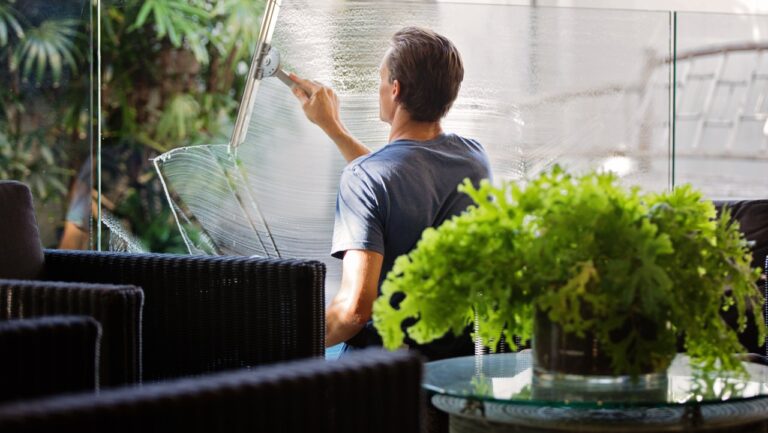
As restrictions begin to relax around the world, it’s important to remember that Covid-19 is still prevalent and there is no vaccine as of yet. Washing hands and wearing face coverings both continue to be as important as ever and the same goes for keeping your home COVID-free and clean. We’ve now all got a responsibility to do our bit and that involves having a spick and span home.
What do we know about coronavirus & being indoors?
Research has found that the virus can live on surfaces such as cardboard, for up to 24 hours and for 2-3 days on surfaces like plastic and stainless steel. If anyone visits your home, drops off delivery or you return to the shops and drop your shopping on the table or kitchen counter, you will need to clean surfaces right away to reduce the risk of the virus’s presence in your home. Other surfaces to clean are:
- Doorknobs
- Hard dining chairs (make sure you clean the back, seat and arms)
- Bathroom counters
- Toilets – handles and seat
- TV remote controls
- Phones
- Game controllers
Obviously these are just a few suggestions – everyone’s home is different. Why not have a scan of your home to get an idea of the surfaces you need to be cleaning on a regular basis.
The first thing to remember is that cleaning and disinfectant are not the same things. Whilst cleaning removes contaminants from a surface, disinfecting kills pathogens.
The CDC (Centers for Disease Control Prevention) recommend that everyone does a little of both, even if you don’t have anyone with the disease in your home – even if you have had coronavirus, it’s still important to do so, as the WHO doesn’t yet know how long a person has immunity for.
How to clean and disinfect
You should start by cleaning the relevant surfaces in your home to remove dust, debris, and contaminants.
Use a clean tea towel with some soapy water or a cleaning spray. You can then apply an appropriate disinfectant, using wipes or a spray. It’s that simple and it could potentially save lives.
Integrate this process into your daily routine for the foreseeable future to combat coronavirus.
Refer to the EPA’s list of disinfectants that you can use at home and have a look at different types of disinfectants in the supermarket to check for the list of viruses they’re effective against.
Dr John Townes, Head of Infection Prevention and Control at Oregon Health & Science University says “if a disinfectant product has an indication for killing influenza, RSB, SARS virus or other coronaviruses, then it should work against this one also.”
If you want to inform yourself on the wider information regarding coronavirus, take a look at the NHS or WHO websites, where you will find official information and statistics.



This was a good read, especially since the 2nd lockdown has started. A lot of useful information in this blog, better to be safe and clean than rather touch items or objects without washing hands and where the virus can stay for a few hours.
Cleaning my flat has become so important to me over this last year, I haven’t done this much cleaning in my whole life lol.